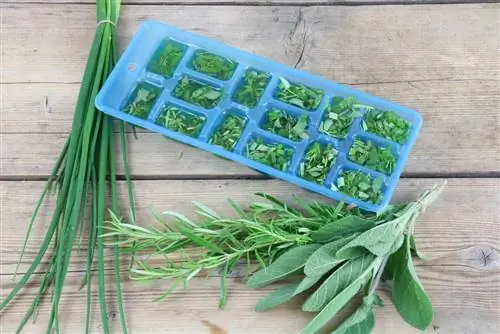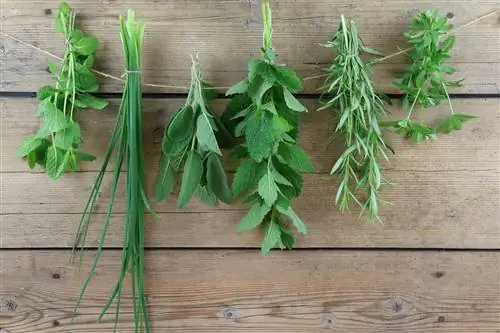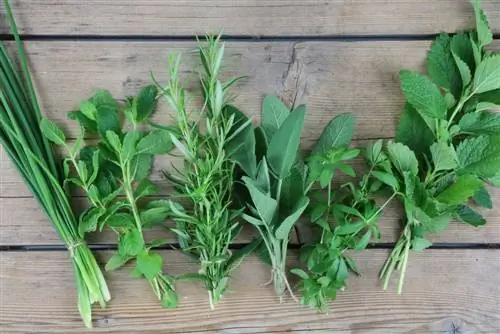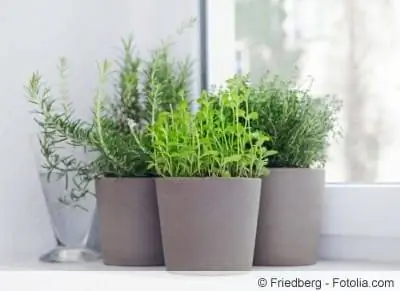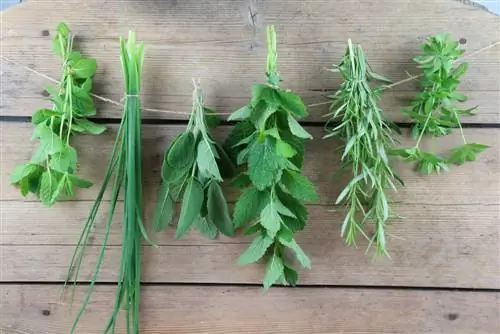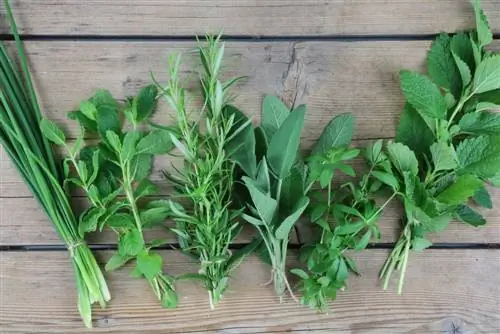- Author admin caroline@plants-knowledge.com.
- Public 2023-12-17 03:39.
- Last modified 2025-06-01 06:48.
Herbs and spices give dishes the spice they need and round off the taste. So it's no wonder that they are becoming increasingly popular among hobby gardeners. The only problem is that you usually have a large harvest, but only a small amount of food needed in the kitchen. Consequently, they must be stored and preserved. In addition to drying, freezing is an option.
Preserving
Spice herbs are characterized above all by their intense aromas. As we all know, these flavors come into their own best when fresh. It's just a shame that herbs only stay fresh for a very short time. Preservation must therefore be about preserving as many of the important flavors as possible. However, preservation cannot be achieved without loss of aroma. In principle, two methods can be distinguished - drying and freezing. The latter is clearly preferred for the vast majority of herbs. Freezing preserves the ingredients and thus also the flavors. In addition, the essential oils are largely retained.
Spice herbs
Basically, all herbs can be preserved by freezing. However, there are also some for whom drying is the better choice because it allows the intensity of the aromas to be increased even further due to the loss of water. These primarily include oregano and thyme. They would quickly lose their flavor in the icebox or freezer. The following herbs are particularly suitable for freezing:
- Wild garlic
- Basil
- Dill
- Coriander
- lovage
- Mint
- parsley
- Chives
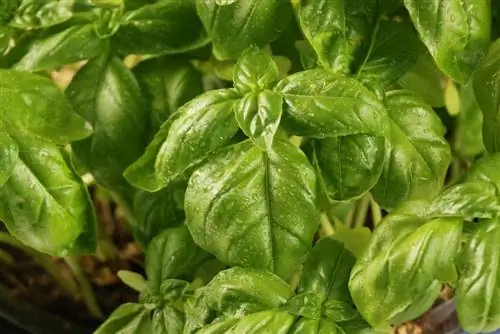
Borage and pimpinelle are also very suitable for this type of preservation. Before most herbs and spices can be frozen, they must first be chopped. There are very few exceptions that can go into the freezer as leaves or stems.
Tip:
When it comes to basil, it's best to put whole leaves in the freezer. Chopping or chopping would inevitably lead to a large loss of aroma.
Freezing
As already mentioned, herbs cannot simply be frozen. Rather, it requires certain preparation. However, this is not magic and can be done relatively quickly with little effort. Processing should generally take place immediately after harvest, as aroma loss occurs very quickly as soon as leaves and stems have been separated from the mother plant. The following steps must be observed:
- Wash the herbs thoroughly with cold running water and then pat dry with a kitchen towel. Be very careful and remove all water if possible.
- Then chop the herbs coarsely to finely. A chopping knife is best suited for this, but a conventional kitchen knife can also be used.
- Then the chopped herbs are portioned into suitable containers. It is ideal if they are added to the container immediately after chopping.
- The containers are then placed in the freezer or freezer, tightly closed.
Note:
Even at normal room temperatures, herbs and spices lose a significant amount of their aromas incredibly quickly. It is therefore strongly recommended to hurry up with processing.
Container
There are now a lot of containers for freezing on the market. The most important requirement for them is that they can actually cope with the subzero temperatures and not suffer from them. With containers that are specifically designed for freezing, you can be sure that this is the case. When it comes to freezing herbs, size plays a major role. As a rule, you don't need particularly large quantities for cooking. It therefore makes little sense to freeze herbs by the pound. Consequently, they must be portioned in relatively small quantities. And this requires small containers or small freezer bags. The containers should also be able to be closed fairly tightly. By the way: Freezing herbs and spices again after thawing is not a good idea, as this can lead to a permanent loss of flavor.
Tip:
With ice cube trays you can easily produce portion-sized herbs that can then be used frozen for cooking. However, the bowl should be placed in a freezer bag or sealed in the freezer or freezer.
Durability
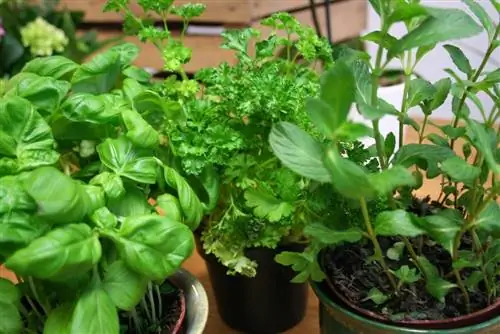
Even if you always hear something different: freezing food does not protect it from spoiling forever. Freezing only slows down the decay and does not stop it completely. Of course, this also applies to frozen herbs. Because of their volatile aromas, their shelf life is even reduced. As a rule, you can assume that frozen herbs and spices will last between six months and a year without any problems. Anything beyond that doesn't necessarily mean that they can no longer be enjoyed. As a rule, your taste may be gone.
Spice mix
Fresh herbs and spices from your own garden are also suitable for making complete spice mixtures or pestos before freezing. The addition of high-quality oils is always recommended. Oils such as olive oil also preserve the herbs and can be easily frozen.
What doesn't work
As mentioned several times, almost all herbs can be frozen. However, it is not advisable to put marjoram, pepper or paprika in the freezer. They lose so much of their aroma that they can no longer be used. In addition, finely ground herbs do not belong in the freezer. Ground food clumps together very easily when frozen and loses a lot of its taste. Vacuuming is clearly the better solution here.

